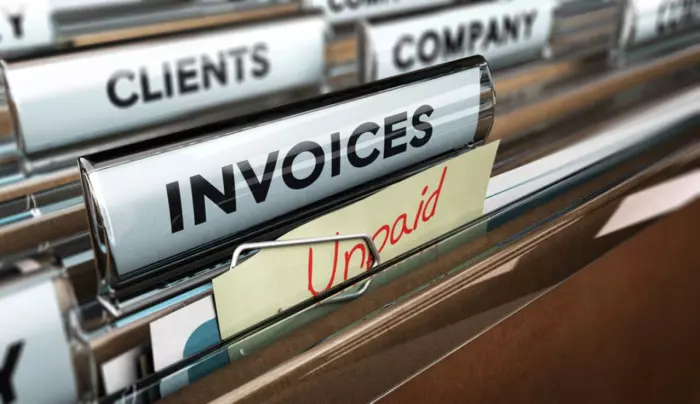In an ideal world, customers pay for your business's goods or services promptly and in line with the agreed payment terms. In reality, this often isn’t the case and is increasingly becoming an issue in the current economic environment.
Late payments can result in cash flow issues for your business, impacting its usual operations. For this reason, it is essential to have effective systems to prevent and handle overdue payments.
Here are some options for recovering outstanding money from your customers.
Communicate with your customer
The first step in the process is to reach out to your customer directly. You may find that the reason they have not paid is as simple as a:
- Forgotten invoice.
- Missed payment.
- Glitch in their automatic payment system.
Since these mistakes are common, it is best to have a process that automatically notifies your business and the customer when they are overdue to make a payment. This process may involve:
- Sending an automated email or text message with a reminder a few days after payment is due.
- Making a follow-up phone call a week later (assuming payment has not yet been made).
Communicating directly with your customer ensures you understand the situation and can more easily reach a solution without potentially jeopardising the business relationship or incurring unnecessary costs.
Negotiate with your customer
Be open to negotiating a financial solution with your customer. They may have a valid reason for not yet paying, such as financial hardship or concerns about your product or service quality.
If your customer faces financial hardship, consider offering alternative payment arrangements such as extended payment terms or payment in instalments. Alternative payment arrangements can ensure you receive the full amount while protecting your business relationship with the customer and ensuring their financial situation is not worsened.
If the customer refuses to pay for a product or service due to poor quality, you can agree on a solution with them directly (by way of replacing the product or service, discounting the price, or a full refund), assuming the complaint is valid. You should ensure compliance with New Zealand’s consumer law protections.
Debt collection agency
If communication and negotiation with your customer fail, you could employ a debt collection agency to handle the outstanding debt on your behalf. The agency could:
- Buy the debt from you, replacing you as the creditor.
- Collect the customer's debt on your behalf and pass any applicable fees to the customer.
Repossession
Repossession is an option if your business requires customers to enter consumer credit contracts that list certain items as security. In the case of overdue payments, you can recover the money owed by repossessing the security item. This security could be:
- The purchased item, such as a car.
- A non-essential item included in the consumer credit contract.
However, when you repossess and sell the security item, the customer's account is frozen, so you cannot add extra fees. If there is still an outstanding balance after repossession, you might still need to use a debt collector or request payment for the remaining debt.
Legal action
Legal action is typically the last resort for businesses when customers refuse to pay. The process of taking a customer to court is time- and cost-intensive, as well as stressful.
Before taking any legal action, you can serve a statutory demand on a customer, which sometimes helps to get them to cooperate. A statutory demand can only be served if the relevant customer:
- Is a company.
- Owes more than $1,000.
- Does not dispute the existence or quantum of debt.
A statutory demand gives the customer 10 working days to challenge the demand or 15 working days to pay. Following this, you have 30 days to begin a liquidation application which the high court will hear.
The disputes tribunal
The disputes tribunal is typically a faster and more affordable option compared to the regular court system.
You can take the matter to the disputes tribunal for claims involving disputed debts of less than $30,000. (You cannot, however, pursue this avenue if the debt is not disputed and the customer cannot or refuses to pay).
The courts
If all other methods prove ineffective, consider pursuing litigation to recover the amount owed. In NZ, you can file a claim in the district court if:
- The value of the debt is less than $350,000.
- It has been less than six years since the customer incurred the debt.
The high court is also an option for more significant debts, but the associated costs are, of course, higher again.
Key takeaways
When dealing with customers who have yet to pay for goods or services, start by contacting them and exploring potential solutions. Your options for recouping money owed include:
- Putting in place automatic systems reminding customers about their debt.
- Negotiating an alternative payment arrangement to suit the customer’s financial situation.
- Engaging a debt collection agency to manage the debt.
- Repossessing the security item if you have entered a consumer credit contract.
- Pursuing legal action via the disputes tribunal or the courts, depending on the circumstances.
A thoughtful and strategic approach can lead to successful recovery while maintaining your business's reputation and financial stability.














